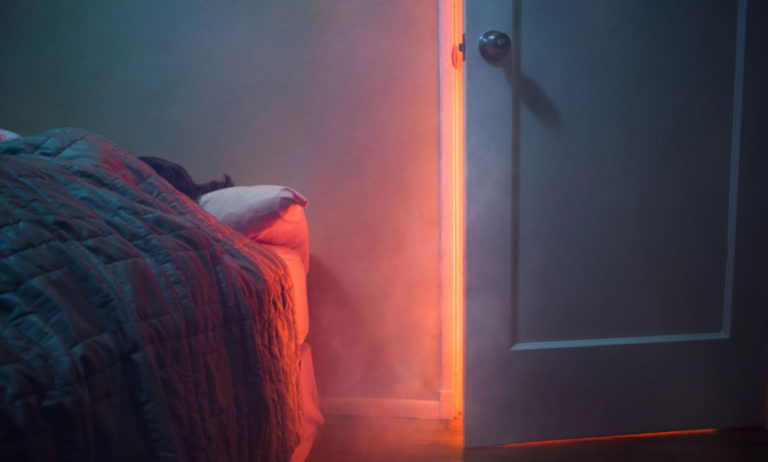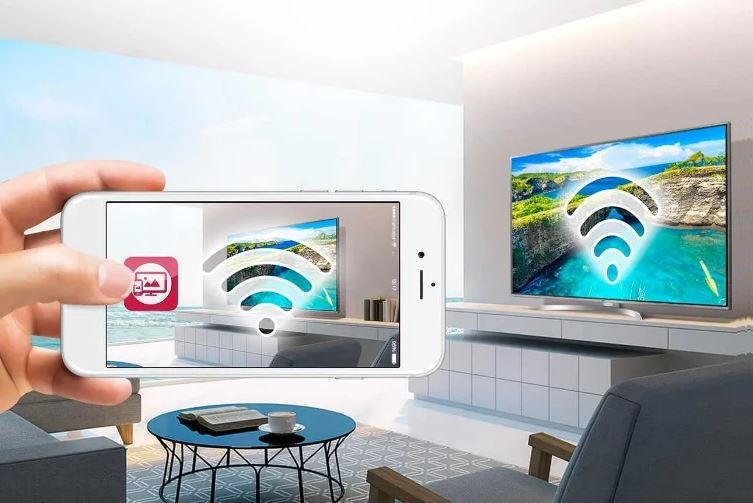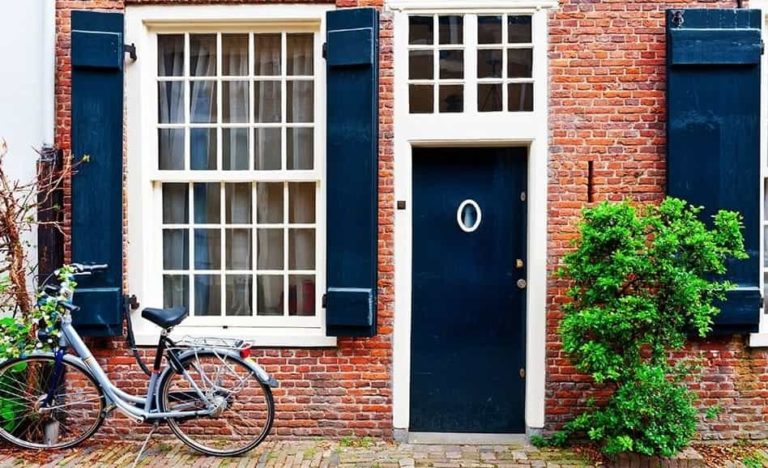Can There Be Cameras In Public Bathrooms? Explained
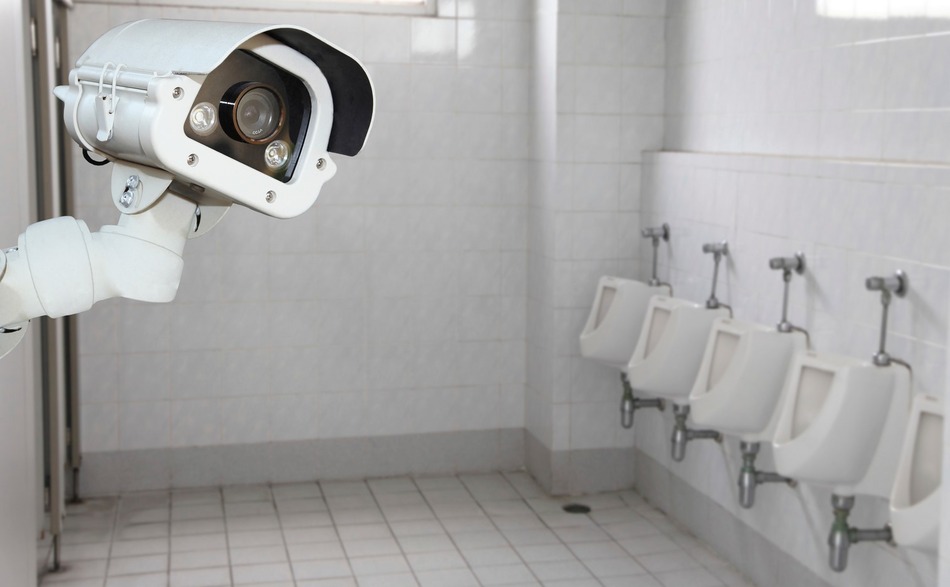
Discovering security cameras in public bathrooms can be unpleasant, often stirring feelings of privacy violation. This situation usually leads to questions about the legality of such actions. Although you may not often come across cameras in public bathrooms, there will be situations where they will be installed. In this article, we’ll talk about the laws and regulations and whether cameras can be in public bathrooms. So, let’s start!
Can There Be Cameras In Public Bathrooms? No, cameras are generally not permitted in public bathrooms. This is due to the high expectation of privacy in these areas, making surveillance illegal. Installing cameras in such private spaces would be considered a serious invasion of privacy.
In most states, it’s absolutely against the law to install cameras in public bathrooms or any private area of someone’s home without their permission. It’s crucial for places with CCTV to display stickers, signs, or notices to properly inform people of the presence of cameras.
Unfortunately, some individuals misuse technology for unsavory purposes. These violators often employ spy or hidden cameras to secretly record unsuspecting individuals, sometimes even distributing these recordings online.
In the United States, such practices are illegal. I’ve had personal experience with this issue. Following my job, I volunteered as a camp host at a state park. During my time there, I discovered several hidden cameras in the bathrooms and shower areas. I used a device that could detect Wi-Fi signals, which helped me locate these cameras. I promptly removed them and reported the incidents to the park rangers.
Related Article: Are Cameras Allowed in Bathrooms? Explained
Table of Contents
Is It Legal To Install Surveillance Cameras in Bathrooms?
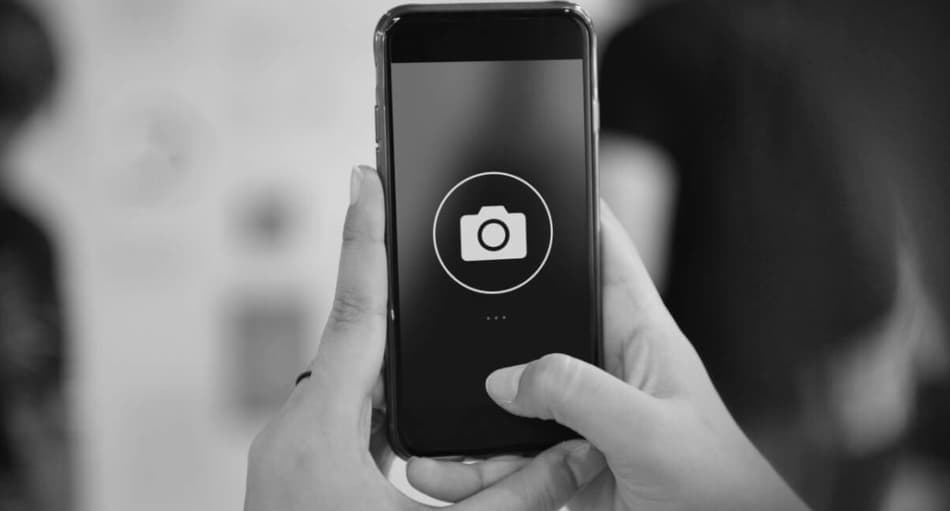
Typically, the law forbids the use of surveillance cameras in bathrooms and other private areas. These areas, where people expect a high level of privacy, include not only bathrooms but also locker rooms, bedrooms, hotel rooms, and any space where one might disrobe.
Non-compliance with this regulation can lead to serious consequences for violators. However, every rule has some exceptions, and this is no exception.
Exceptions When Security Cameras Can Be Placed In Bathrooms
There can be exceptions when some institutions can install cameras in bathrooms. In educational areas, for example, this is often seen. Incidents of bullying or violence in schools tend to occur in less visible areas, leading to the installation of surveillance cameras in public bathrooms. The main goal of installing these cameras is to reduce activities like smoking or fighting, thereby enhancing student safety.
These cameras are fixed in position, meaning they cannot pivot, zoom, or change angles. They focus strictly on the bathroom’s communal areas, such as sinks or handwashing stations. Directing cameras towards private areas like toilet stalls or mirrors is prohibited.
How do You Detect Security Cameras In the Bathroom?
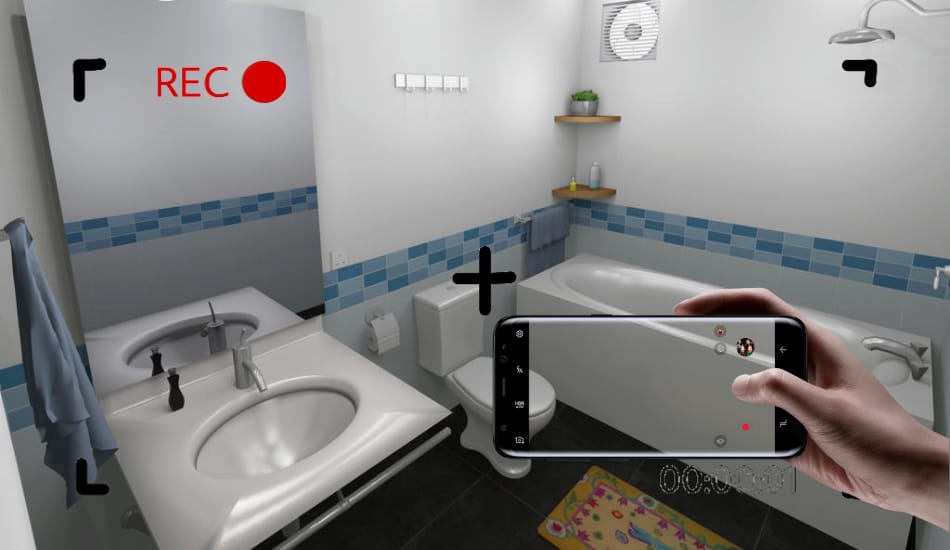
It might seem a bit over-the-top, but checking for hidden cameras in public bathrooms is a good step for those concerned about their privacy. So, how can you spot these hidden cameras? Here are a few pointers to help you uncover any hidden surveillance cameras in bathrooms.
- Visual Inspection: Start by taking a careful look around. Check for any unusual objects or small holes where a camera lens might be hidden. Pay attention to areas like vents, light fixtures, or any place that seems oddly positioned or out of place.
- Look for Wires or Unusual Power Sources: Cameras often need a power source. Keep an eye out for any wires that seem out of place or devices plugged into unusual spots.
- Check for Reflective Surfaces: Some small cameras have reflective lenses. Slowly scan the room with your phone’s flashlight and look for unusual glints or reflections that could indicate the presence of a camera lens.
- Use Your Mobile Phone: Some suggest calling a friend while walking around the bathroom. If there’s interference on the line, it might indicate a camera’s presence, as some emit frequencies that can interfere with phone signals.
- Look for Two-Way Mirrors: Place your fingertip on the mirror. If there’s a gap between your finger and its reflection, it’s likely a normal mirror. If they touch directly, it might be a two-way mirror, potentially hiding a camera.
Do Hospitals Have Cameras In The Bathrooms?
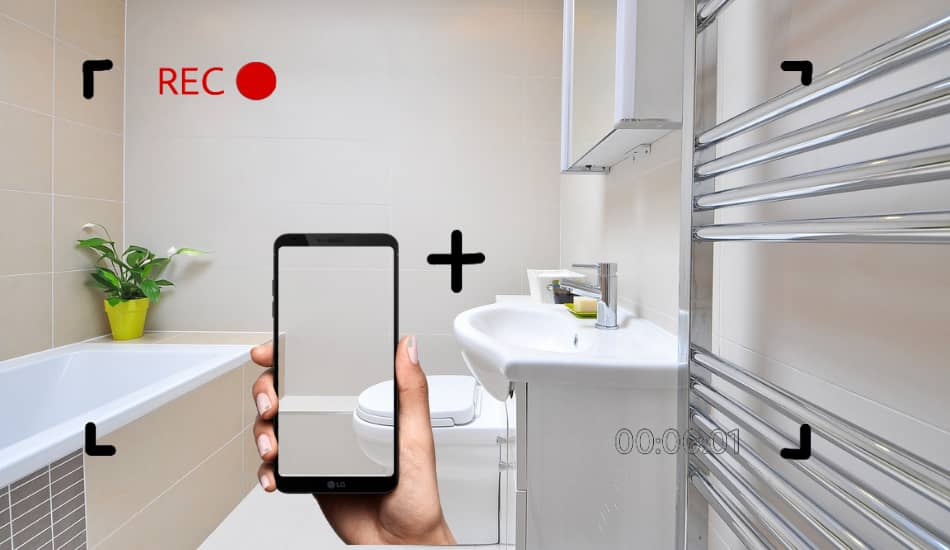
Cameras in hospital bathrooms vary based on the hospital’s specific policies. Certain hospitals might install cameras to keep an eye on patients who are susceptible to self-harm, whereas others may utilize them to enhance security measures.
On the other hand, some hospitals do not have cameras in their bathrooms. For those worried about their privacy, it’s recommended to inquire about the hospital’s camera policies with the staff before using the bathroom facilities.
FAQ: People Also Ask
Are security cameras in bathrooms?
Security cameras are allowed on private property, but recording individuals without their knowledge in areas where privacy is expected is illegal. This includes locations such as bathrooms, changing rooms, and private bedrooms.
Do bathrooms in airports have cameras?
In places like airports, shopping malls, and streets, where there is a limited expectation of privacy, the use of cameras is legal. However, areas such as bathrooms, changing areas, and locker rooms are deemed private and are therefore off-limits for camera surveillance.
Final Thoughts
In conclusion, cameras in public bathrooms are a deeply concerning issue that balances the fine line of privacy and security. While the intention might be to enhance safety, respecting individual privacy rights is very important.
Legal restrictions in most places rightly prohibit such surveillance, reflecting a societal consensus on the sanctity of personal spaces. It’s essential for everyone to stay informed and vigilant about their surroundings and to report any unauthorized or hidden cameras to the appropriate authorities. Ultimately, the collective responsibility to uphold privacy in such intimate settings is a cornerstone of our respect for personal dignity and freedom. I hope that this article has helped you, and if you have any other questions, feel free to comment below.


